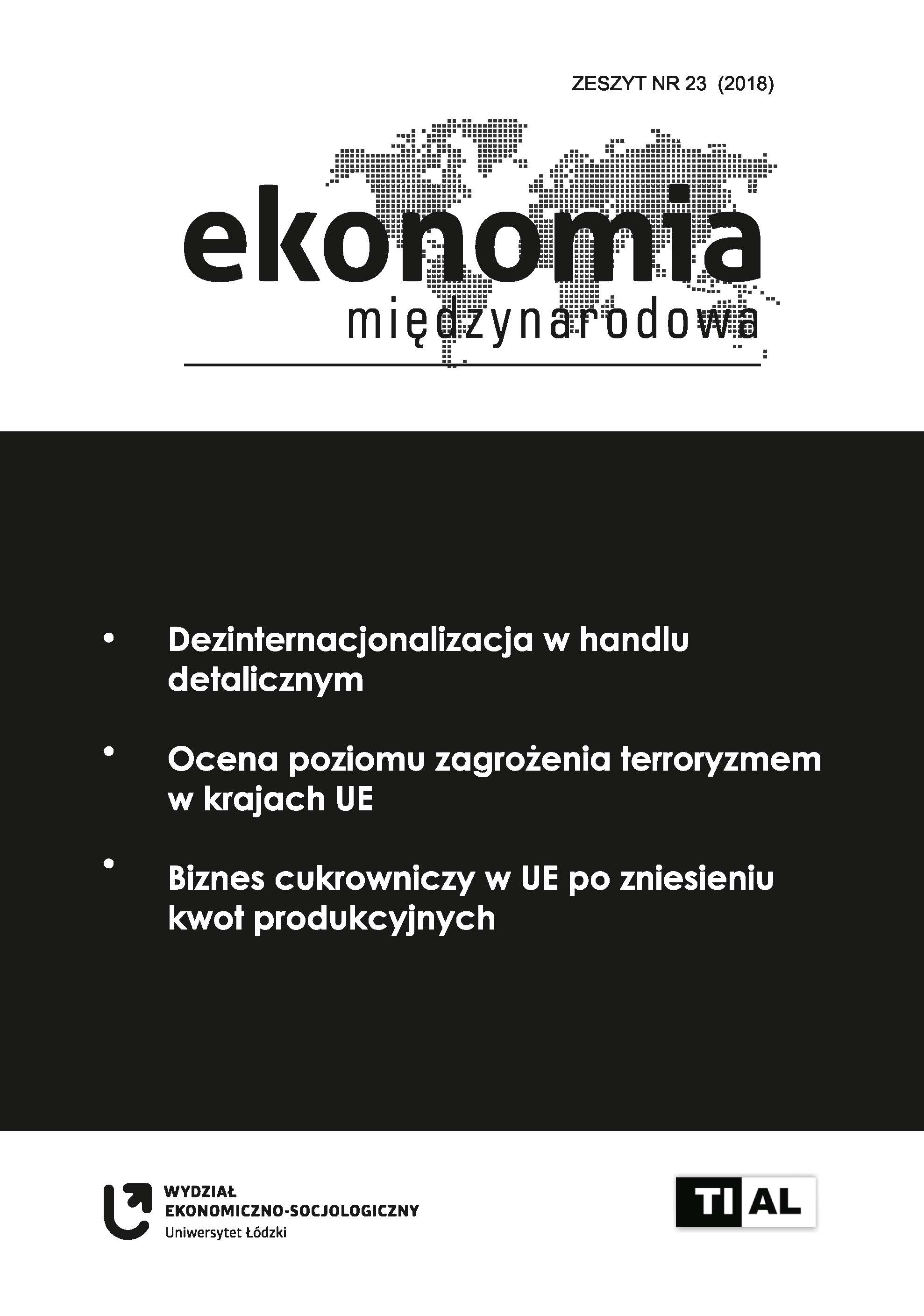Biznes cukrowniczy w Unii Europejskiej po zniesieniu kwot produkcyjnych – przypadek Polski
Sugar business in the European Union after the elimination of production quotas – the case of Poland
Author(s): Henryk WnorowskiSubject(s): Economy, Supranational / Global Economy, Agriculture, Financial Markets
Published by: Wydawnictwo Uniwersytetu Łódzkiego
Keywords: sugar business; common agricultural policy; sugar; global sugar market; production quotas; biznes cukrowniczy; wspólna polityka rolna; cukier; światowy rynek cukru; kwoty produkcyjne
Summary/Abstract: Sugar production is an important part of the agri-food sector in the European Union in general, and Poland in particular. Companies operating in this industry im-plement their own microeconomic goals and contribute to the development of the economies in which they are located. The results they achieved depend, to a large extent, on both economic and regulatory conditions. On 1 October 2017, a very important regulatory change was carried out, namely the reform of the sugar market regulation, the main element of which is the abolition of sugar production quotas and the minimum purchase price of sugar beet. Therefore, the author of this article, taking into account the fact that the regulations abolished on that date had functioned within the framework of the Common Agricultural Policy for almost fifty years, tries to answer the question about the consequences of the changes for the sugar industry in the EU. Without any doubt, the new reality in which EU and Polish sugar producers, as well as the sugar beet growers, have found themselves, will be demanding and will result in higher dynamics of the market mechanism. The vulnerability of the EU market to global demand-supply shocks will increase. It seems that an increase in the volatility of sugar prices will be one of the main consequences // Produkcja cukru jest ważną częścią nie tylko polskiego sektora rolno-spożywczego, ale także całej UE. Funkcjonujące w tej branży przedsiębiorstwa mają własne mikroekonomiczne cele, a także przyczyniają się do rozwoju gospodarek, w których są zlokalizowane. Wyniki przez nie osiągane w dużym stopniu zależą od uwarunkowań ekonomicznych, ale także regulacyjnych. 1 października 2017 r. została przeprowadzona bardzo istotna zmiana regulacyjna, a mianowicie reforma regulacji rynku cukru, której głównym elementem jest zniesienie kwot produkcyjnych cukru oraz minimalnej ceny skupu buraków cukrowych. Stąd autor niniejszego artykułu, biorąc pod uwagę fakt, że zniesione regulacje funkcjonowały w ramach wspólnej polityki rolnej prawie 50 lat, stara się odpowiedzieć na pytanie o konsekwencje tych zmian dla biznesu cukrowniczego w UE. Bez wątpienia nowa rzeczywistość, w jakiej znaleźli się unijni oraz polscy producenci cukru, a także plantatorzy buraka cukrowego, będzie dla nich wymagająca i będzie oznaczała dużą dynamikę zjawisk rynkowych. Zwiększy się podatność rynku unijnego na światowe szoki popytowo-podażowe. Wydaje się, że główny obszar, w którym będziemy mieli do czynienia z konsekwencjami deregulacji, to zwiększanie zmienności poziomu cen cukru. W konsekwencji prowadzenie biznesu w tej branży będzie bardziej nieprzewidywalne.
Journal: Ekonomia Międzynarodowa
- Issue Year: 2018
- Issue No: 23
- Page Range: 103-116
- Page Count: 14
- Language: Polish

